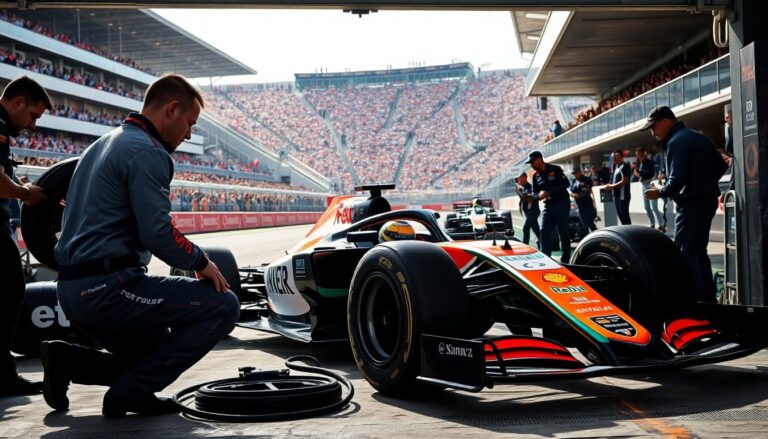Argomenti trattati
Formula 1, often abbreviated as F1, represents the pinnacle of motorsport, drawing millions of fans globally. Renowned for its high-speed races and cutting-edge technology, F1 has transformed into a multifaceted sport that combines engineering excellence, strategic teamwork, and compelling narratives both on and off the circuit. Since its inception in 1950, F1 has not only influenced the motorsport landscape but has also had a significant impact on automotive technology and culture.
The F1 World Championship showcases teams and drivers competing in a series of races known as Grands Prix, hosted on various circuits worldwide. Each season, teams such as Mercedes, Red Bull Racing, and Ferrari strive for dominance, highlighting their engineering achievements and the talents of their drivers. This article explores the history, teams, technology, and cultural significance of Formula 1.
The rich history of Formula 1
The history of Formula 1 is a tapestry woven with legendary drivers, unforgettable moments, and notable technological advancements. The inaugural season in 1950 featured seven races, culminating in Italian driver Giuseppe Farina becoming the first World Champion. Over the decades, the sport has seen the rise of iconic figures such as Ayrton Senna, Michael Schumacher, and Lewis Hamilton, each leaving an enduring legacy.
Key milestones in F1 history
Several milestones have shaped the evolution of Formula 1. The introduction of the turbo engine in the late 1970s dramatically altered the dynamics of the sport, enabling higher speeds and more complex engineering. The 1980s and 1990s witnessed intense rivalries, most notably between Senna and Alain Prost. The turn of the century marked the dominance of Michael Schumacher, whose seven championships set a standard that resonates to this day.
In recent years, the sport has embraced hybrid technology, merging traditional internal combustion engines with electric power. This transition not only boosts performance but also aligns with global sustainability objectives. As F1 advances toward a greener future, it continues to innovate while honoring its rich heritage.
The teams and their engineering excellence
At the heart of Formula 1 are the teams that meticulously design their cars to secure competitive advantages. Each team consists of engineers, designers, and strategists who collaborate to achieve optimal performance. Mercedes-AMG Petronas, for instance, has excelled since 2014, leveraging its innovative hybrid power unit and outstanding aerodynamics.
Team dynamics and strategies
Team dynamics are crucial for success in F1. The collaboration between drivers and engineers is vital, as drivers provide real-time feedback that influences car adjustments during races. The strategic aspect of F1 is equally important; decisions regarding tire selections, pit stops, and race pace can determine a team’s chances of victory. Mastering the intricacies of race strategy distinguishes the leading teams from the rest.
With new regulations and the emergence of competitive teams like Red Bull Racing and Scuderia Ferrari, the competition in F1 has intensified. Each team continuously adapts and innovates to maintain an edge, making the championship more unpredictable and thrilling for fans.
The cultural impact of Formula 1
Formula 1 transcends being merely a sport; it has become a global phenomenon influencing culture, fashion, and technology. The glamour associated with F1 attracts celebrities, sponsors, and extensive media coverage, transforming each race into a spectacle. The sport also provides a platform for brands to showcase their products to a wealthy audience.
Furthermore, F1’s commitment to diversity and inclusivity is increasingly prominent. Initiatives like the F1 Academy aim to nurture young talent from diverse backgrounds, ensuring that the future of F1 reflects the diversity of its fanbase. This cultural shift is crucial for the sport’s growth and relevance in an ever-evolving world.
The F1 World Championship showcases teams and drivers competing in a series of races known as Grands Prix, hosted on various circuits worldwide. Each season, teams such as Mercedes, Red Bull Racing, and Ferrari strive for dominance, highlighting their engineering achievements and the talents of their drivers. This article explores the history, teams, technology, and cultural significance of Formula 1.0

